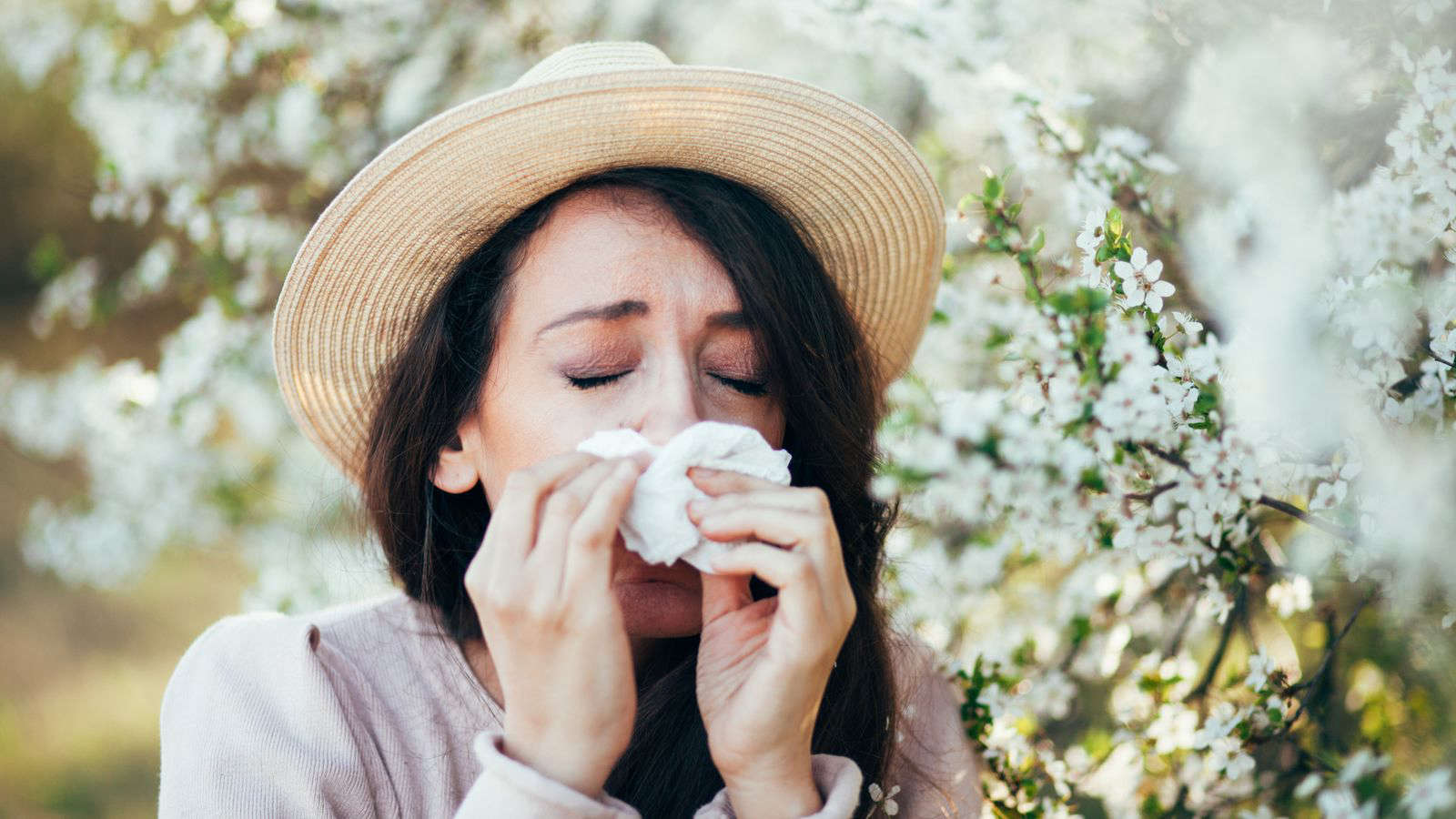
A ‘pollen bomb’ will cover the UK this week as the Met Office warns of a higher pollen count caused by the warmer weather.
Google Trends data reveals UK searches for ‘hay fever symptoms’ jumped 289% this week as households search for help with allergies.
Hay fever-related searches reach a year-high every June, as grass pollen, the most common allergen, peaks during the first two weeks, according to the Met Office.
Hay fever issues appear to be more widespread than ever - Google searches for ‘antihistamines’ are up 362% over the last 20 years, reaching an all-time high last June.
Experts at Bed Kingdom reveal 10 tips to help reduce allergens at home. These tips are designed to help give you a great night's sleep and save you from waking up with red eyes, a blocked nose, and a scratchy throat.
Now is the time to act to prepare for the higher pollen levels affecting the UK over the coming weeks.
What is hay fever, and what causes it?
Hay fever is a common allergic reaction to pollen from grass, trees, and weeds, typically occurring in spring and summer when the pollen count is highest.
It is caused when the body produces antibodies to pollen, dust, or mould.
The most common allergen is grass pollen, which usually peaks in the first two weeks of June. However, tree and weed pollen and indoor allergens like dust mites, pets, and mould also contribute.
However, by following these tips, you can ease your symptoms and reduce how much pollen gets into your home to encourage an allergy-free night's sleep.
1. Apply vaseline to trap pollen
Vaseline acts as a barrier and traps pollen. Apply Vaseline around your nostrils and under your eyes in the morning or at night before bed to prevent as much from entering your eyes and nose.
2. Wear protection
Wearing sunglasses and a hat or hair tie will prevent pollen particles from gathering around the eyes and on your hair and skin.
At night, a sleeping or cooling mask can help achieve the same effect and prevent any pollen on your bedding from getting into your eyes as your sleep.
3. Shower and change clothes after being outside
Pollen collects on us throughout the day, sticking to our clothes, hair, and skin. If you’ve been outside, shower and change your clothes and shoes to wash off and eliminate particles, helping to prevent spreading onto bed sheets and throughout the home. Avoid walking on grass where possible to avoid direct contact with pollen.
4. Keep windows and doors shut
In summer, our instincts encourage us to open our windows and doors to let fresh air in. For allergy sufferers, it is better to keep them shut, at least for the first few hours after sunrise, as this is when pollen is released and before sunset when it settles back down. Consider using a dehumidifier if windows must stay open.
5. Vacuum regularly and dust with a damp cloth
Allergens embed into our carpets from culprits such as the air, our shoes, and pets. Vacuuming regularly will help prevent a build-up. Take care and vacuum slowly, being too aggressive can stir dust around the room.
Vacuum areas that can be hotbeds for allergens: headboards, mattresses, carpets, and hard floors. Wipe clean flat surfaces, fans, decor, and light fixtures.
Remember to empty your vacuum outside, releasing dust outside and not back into your home.
Feather dusters can kick up dust and make allergies worse. A damp cloth will help trap allergens, removing more pollen from the home.
6. Choose the right bedding, and wash regularly
Consider investing in hypoallergenic bedding. Cotton, rayon, or synthetic fibers are hypoallergenic.
Pillows made from bird feathers, such as goose or duck down, can hold allergens that cause hay fever-like symptoms; consider switching to a down-alternative, which is naturally hypoallergenic, as the material is less likely to trap allergens.
Beds trap pollen, dust, and dirt, so wash bedding at least every other week on a hot cycle to discourage a buildup and keep sheets feeling fresh, encouraging a better night’s sleep.
Tip: Avoid hanging laundry outside, as it will bring pollen into the home. Use a dryer if possible.
7. Try natural remedies to reduce symptoms
Most sufferers use antihistamine tablets, but they don’t always work. Some make you sleepy. This is great if you have insomnia, but it’s not ideal first thing in the morning. Thankfully, there are other at-home remedies backed by research.
Nettle tea contains antihistamines to settle sinus inflammation caused by hay fever.
Pineapple, as well as being high in vitamin C, contains bromelain, an enzyme that combats inflammation, swelling, and irritation caused by pollen.
Research suggests quercetin, a powerful antioxidant, can help relieve inflammation and itchiness and boost the immune system.
Quercetin-rich foods include onions, kale, broccoli, and skin-on fruits like tomatoes, blueberries, and apples.
8. Swap houseplants for hypoallergenic alternatives
Nature is in full bloom - but some houseplants may be making your symptoms worse.
Check if your home contains any of the following plants:
-
Chamomile
-
Daisies
-
Chrysanthemums
-
Sunflowers
-
Cypress
-
Jasmine
-
Juniper
-
Wisteria
Instead, keep them outside and consider low-pollen alternatives such as roses, daffodils, crocuses, lilies, or pansies.
9. Clean pets
Pets, including birds, will carry pollen into the home. If your pet goes outside, it is a good idea to brush them down before letting them back in. Use baby pipes on paws and faces. If daily grooming isn’t an easy option, keep animals out of the bedroom to contain the spread.
A spokesperson from Bed Kingdom said:
“Allergies are unavoidable while outside, but there’s much we can do to keep pollen out of the home. These tips will contribute to a better night’s sleep when the pollen count is high, helping you wake up refreshed rather than groggy and stuffy. And most of these suggestions will cost you less than a pack of allergy tablets!”

 Five Incredible Spas Around the World
Five Incredible Spas Around the World
 Five Fab Wellbeing UK Destinations Ideal in January
Five Fab Wellbeing UK Destinations Ideal in January
 Five Weird Wellbeing Foods Around The World
Five Weird Wellbeing Foods Around The World
 Five Hilarious New Year's Resolutions Worth Trying
Five Hilarious New Year's Resolutions Worth Trying
 Five Alternative Christmas Dinners For Turkey Haters
Five Alternative Christmas Dinners For Turkey Haters